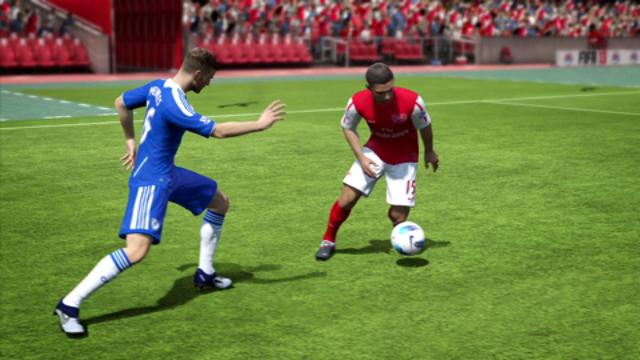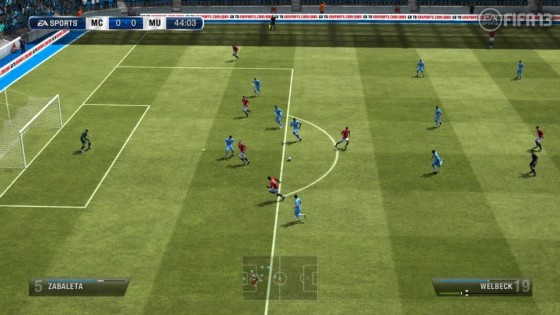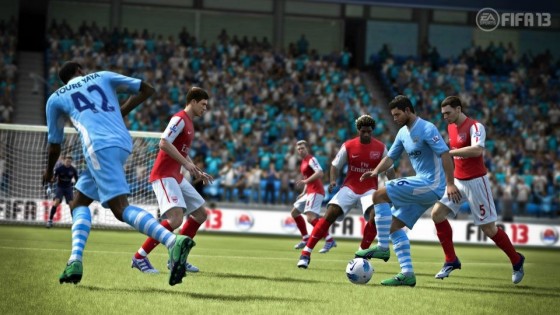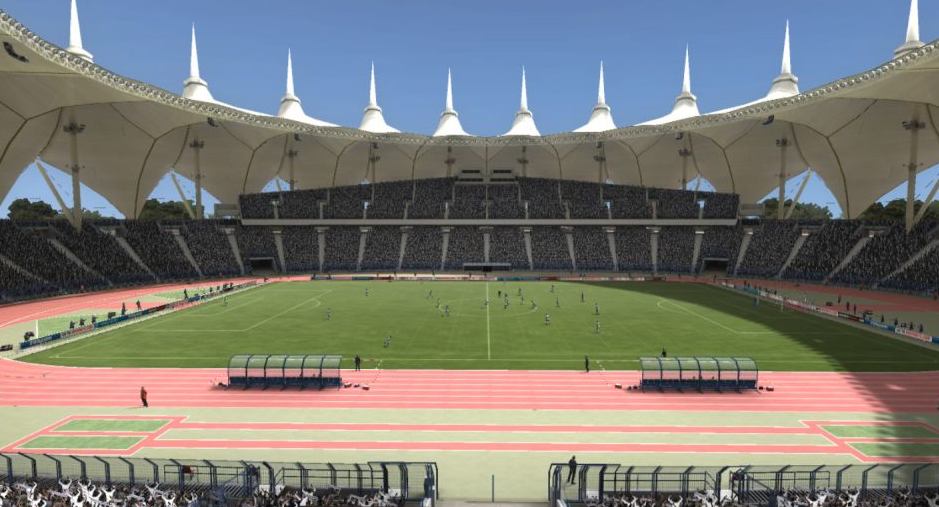

It's no surprise that many players prefer playing with a medium or small club in FIFA 13's Manager Mode, rather than with one of the traditional big guns. The amount of challenges you face with a team that’s not named Manchester City/Manchester United/Barcelona/Real Madrid-- financial restrictions, less talented players-- make the mode a lot more fun to play. Of course, if you are used to playing with one of those said teams, managing a smaller club can seem challenging at first, trying to win and stay thrifty at the same time is not easy after all.
For those who may be struggling in FIFA 13’s Manager mode with an average team and a below average transfer kitty, here are some tips that may help you succeed.

First thing is first: You simply don't have superstar players. Got that?
Horses for Courses
If you’re one for attractive football and take on a team full of grafters (say, Sunderland) as a challenge, leave your visions of tiki-taka at the door, at least for the first few seasons.
The point is, unless you’re playing as Barcelona, chances are pragmatism will almost always trump philosophical purity when building your team in FIFA 13. If the players you inherit aren’t suited to playing your preferred style, you’ll just be courting trouble if you force the issue anyway. Surely you don’t expect Cattermole and Gardner to be playing nifty one-twos all game long, do you? Simply put, set up your tactics to suit your team, and not necessarily your own personal preferences.
Having said that, you still have to take into account your style to some extent. Not how you think the sport should be played, mind you, but rather, what facets of the game you excel at. If you’re better with the skill stick than you are with neat build up play, consider playing a wide game and using the team's pacey wingers. On the other hand, if you’re better at reading the game, keeping the ball and playing the killer passes, insert the playmakers into your first team. Sometimes the style you’re good at may not be the style you want to play. In that case, it’s up to you to decide whether it’s more important to lose idealistically, or win pragmatically.

Playing on a budget usually requires making some pragmatic compromises with your team.
Resist Your Impulses
A lot of times we have a tendency to want to overhaul everything the very second we fire up manager mode, transfer listing almost all of the starting eleven to fund transfers for players they want. That might work if you’re playing as Manchester City—hell, you probably don’t even have to sell too many players—but chances are it may not work for teams that don’t have bank accounts full of oil-stained dollar bills. Make sure the money you make by selling can match the prices for the players you want to buy before you embark on your purge, otherwise you’d have more holes in your squad than you can cover.
Also, ask yourself if your transfer targets are really the players you want. Sure, they may be better options than the players you currently own, but if they either don’t suit your playing style (see the previous section), or if you’ve always coveted other players who just aren’t available at the moment, ask yourself if you’re better off holding off and waiting for the ones you truly want. Say it’s the last day of the summer transfer window. A player who plays the same position and is marginally better than your own first-teamer is available. Do you make the deal and empty your kitty, only to risk that when January comes along a better option—and there probably are plenty—becomes available? Or do you wait it out? There’s no definite answer to this, but it’s worth it to have a second thought before buying somebody for the short term. It sounds like a no-brainer—in fact, this whole section should pretty much be team building 101—but it’s easier said than done when our team-building impulses take over.

You aren't Arsenal...you just aren't. Get those wild dreams of throwing money around out of your head.
On the Cheap
For a small budget team, unless you have no other holes to fill, it almost always makes no sense to spend a big chunk of your transfer budget on one single player. In fact, a large part of the fun (or headache, depending on how successful you are) in managing a smaller team is using your resources effectively. Again, most of the time it depends on the situation, but my rule, when I play with a small team, is to always buy transfer-listed players and take advantage of their discounted price. The savings can be huge. Sometimes you can almost buy two transfer-listed players for the price of one marginally better, though unlisted, player. Also consider taking advantage of loans and free transfers to get some extra bodies into your squad. While you may not be able to sign any worldbeaters through those routes, it comes in very handy when you want to add some extra depth to your bench.
The Youngin’s
Sure, everybody wants to scout the best and brightest youngsters and develop them. Again, while it may be possible to do this right out of the gate with a big team, it probably isn't the wisest idea to sink your resources in here if you’re managing a middle-of-the-road or lower league squad, especially since good scouts can set you back a fair bit. Take care of the present first, as youngsters will likely take at least a season or two before you can even think about inserting them to your first team. Investing in the long term is a nice idea, but there’s not much point to it if you’ve been relegated and you’re in a much bigger hole, not to mention a significantly smaller budget, than when you've started. That is, if you’re even still employed with the club.
When you do have the luxury of really developing youngsters, fork out the cash and invest in five star scouts. After you’ve signed the players to your team, consider loaning them out if you can’t afford them playing time in your own squad, as first team experience can help them gain attribute points much faster than if they toil on your bench.

Final Thoughts
Rome wasn’t built in a day. Your club most likely won’t end up topping the table at the end of your first, second, or even third season. The biggest thing is to be practical-- you can't overhaul your squad in one transfer window, and you probably can't suddenly get your team playing fantasy football, either. Change slowly and incrementally, improve your squad year by year, and chances are before long you will have a contender on your hands. Happy managing!




 MLB Bobblehead Pros Pitching Guide
MLB Bobblehead Pros Pitching Guide OS Tip of the Day: Use Your Boost Pins (Tiger 13)
OS Tip of the Day: Use Your Boost Pins (Tiger 13) NCAA Football Defensive Strategy: Cornerback
NCAA Football Defensive Strategy: Cornerback Madden NFL 12: Winning on Draft Day
Madden NFL 12: Winning on Draft Day Madden Ultimate Team: Building on a Budget
Madden Ultimate Team: Building on a Budget